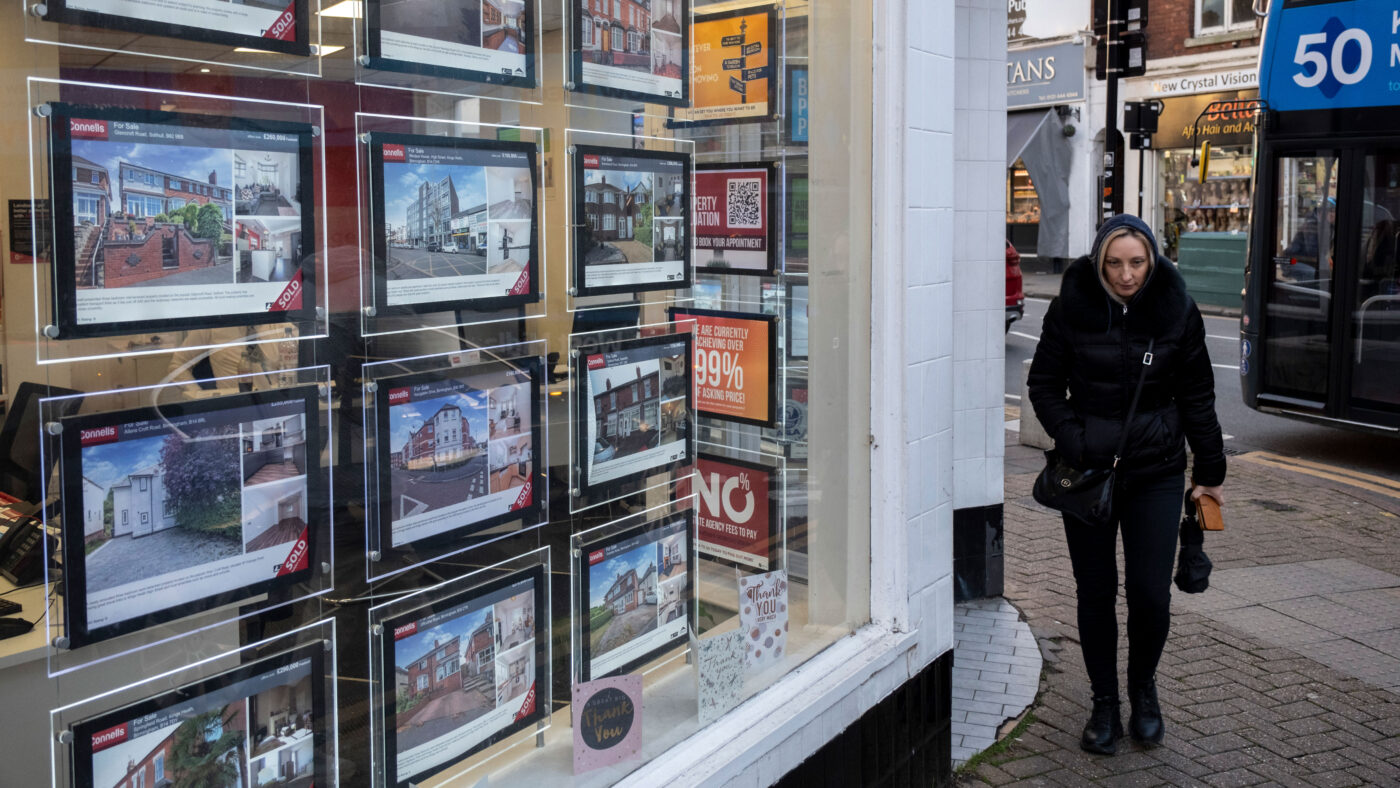As the economist John Maynard Keynes famously said, markets can stay irrational longer than you can stay solvent. This is painfully true for property price catastrophists. And I should know; for several years, I was one of them.
Was it callous, to watch British house prices boom and yearn for a crash? To wish repossessions on landlords and innocent homeowners alike? Probably. But look where we’ve ended up. Young people condemned to rent privately till their dying day. Couples scared to have children because of the insecurity.
Googling the phrase ‘house price crash’ plunged me into this rabbit hole in 2006. From 1989-95, I’d watched the value of the average UK house plunge, according to the Halifax, from about £70,000 to £50,000. Its subsequent trebling, mostly under the New Labour government, horrified me.
I’d witnessed the desperation of friends, driven into negative equity in the early 90s, and my working-class upbringing made me intensely suspicious of taking on large debts. By the turn of the millennium, I was a modestly paid local newspaper reporter in London who equated home ownership with mortgage slavery.
A huge mistake, in hindsight.
Still, I wasn’t alone. Websites existed for the similarly cautious, the most prominent being housepricecrash.co.uk (which still exists). To frequent these sites’ forums was to be plunged into a world of worst-case economic scenarios and financial contrarianism. That, and a preponderance of wishful thinking.
The gist of the property bears’ argument was that lower-than-normal interest rates, in the region of 5%, had set off a frenzy that couldn’t be sustained. Sooner or later normality would be restored, perhaps dramatically, like the never-ending slump in Japanese assets that began in the 1980s.
Under Tony Blair, Gordon Brown and a Bank of England that had been independent since 1997, consumer price inflation was kept to around 2% while house price rises merrily went through the roof. One might say that the figures were being fiddled, but in the short to medium term, voters and the media seemed ecstatic.
The house price crash community’s biggest doom-mongers warned of a derivatives-led systemic collapse, ushering in a Mad Max-style apocalypse. To the huge surprise of more mainstream pundits, this almost happened in the subprime crisis of 2008.
Other posters on the forums, alarmed at the UK’s buy-to-let obsession and the general delight at house prices that soared faster than salaries, simply wanted a foot on the housing ladder.
Most interesting of all were the so-called STRs, who had sold to rent. Specifically, they had cashed in their chips, moved into rented accommodation and crossed their fingers that a crash was just around the corner.
Unfortunately for them, the relative carnage in the American housing market wasn’t replicated here. Granted, UK prices dipped slightly; but unless you made a killing somewhere else – gold, or US dollars, or securities, or in later years, cryptocurrencies – the chances are you were stuffed.
Looking back, I regret that I succumbed to such a paranoid, cultish mentality – but at least I got out at some point. Using Halifax figures again, the average house price in May 2006 was £174,910. Seventeen years later, it was £286,532. I’ll let you do the maths.
Annoyingly, I and the other doomsters – the cranks, if you like – were given fair warning by the so-called ‘trolls’ and ‘vested interests’ on the forums. These bullish contributors argued that (i) the UK’s population was rising inexorably, and (ii) no politician wants to be John Major, who had watched his reputation slump as interest rates rose to 15% after Black Wednesday in 1992.
In troubled times, central bankers would slash interest rates to 3%, the property bulls told us. In reality, the Bank of England went much further, cutting base rates to 0.5% in 2009, and to 0.25% in 2016.
My personal epiphany came in 2013, when Conservative chancellor George Osborne brought in the Help to Buy scheme for first-time buyers. If I needed proof that politicians would stop at nothing to prop up the housing market, here it was.
Not that Labour is any more responsible. Just last month, shadow chancellor Rachel Reeves proposed forcing banks to help homeowners with their mortgages – though to be fair, she ruled out ‘a big fiscal injection of cash’.
I ultimately bought a home in 2016, when remote working by laptop meant I could leave London. Luckily I’m from Teesside, where houses are cheap by national standards, so I could buy one outright for what would be a deposit on a flat in one of the seedier parts of the capital.
I’m acutely aware that if I’d bought a flat in London 20 years ago, I’d be in clover now – but I don’t blame the websites in question. For all their faults, they reflected a financial timidity that I and many others shared, perhaps with good reason. More to the point, they foresaw the 2008 crisis when the great and good seemed oblivious.
Click here to subscribe to our daily briefing – the best pieces from CapX and across the web.
CapX depends on the generosity of its readers. If you value what we do, please consider making a donation.


